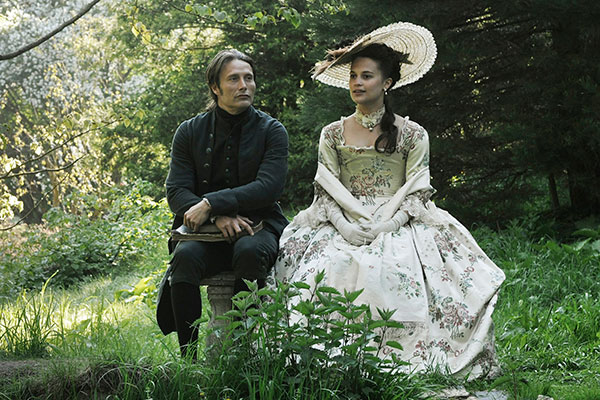A Royal Affair (En kongelig affære)
Director: Nikolaj Arcel
The plot is fairly standard. Beautiful princess is betrothed to foreign king. All is set for Caroline Mathilde to live happily ever after, until the king in question turns out to be crueller, more sexually depraved, and generally odder than anticipated. Luckily, a stoic physician and man of the enlightenment, Dr Struensee, arrives at court to treat the increasingly mad king and sleep with his increasingly depressed wife. Various radical laws are passed under the influence of the forward-thinking doctor, complicated allegiances are made between political factions at court, and the Danish people begin to revolt for reasons that are not fully explained.
At the heart of this chaos lies the love triangle between the three protagonists, which holds the film firm amidst a quickly unraveling plot. With Struensee required to be a shrewd political actor, down to earth doctor, man of the revolution, doting carer to the king and lover to the queen, Mads Mikkelsen is at times spread too thinly to fairly showcase his acting talent. This failure is more than made up for by Mikkel Boe Følsgaard and Alicia Vikander, who manage to pull off compelling dramatic characters by playing them with focussed understatement. While this film is not perfect – the story does lose momentum in a myriad of plot points towards the end – if you’re a fan of historical dramas, or want to watch one of the best of them, A Royal Affair is a film well worth seeing.








